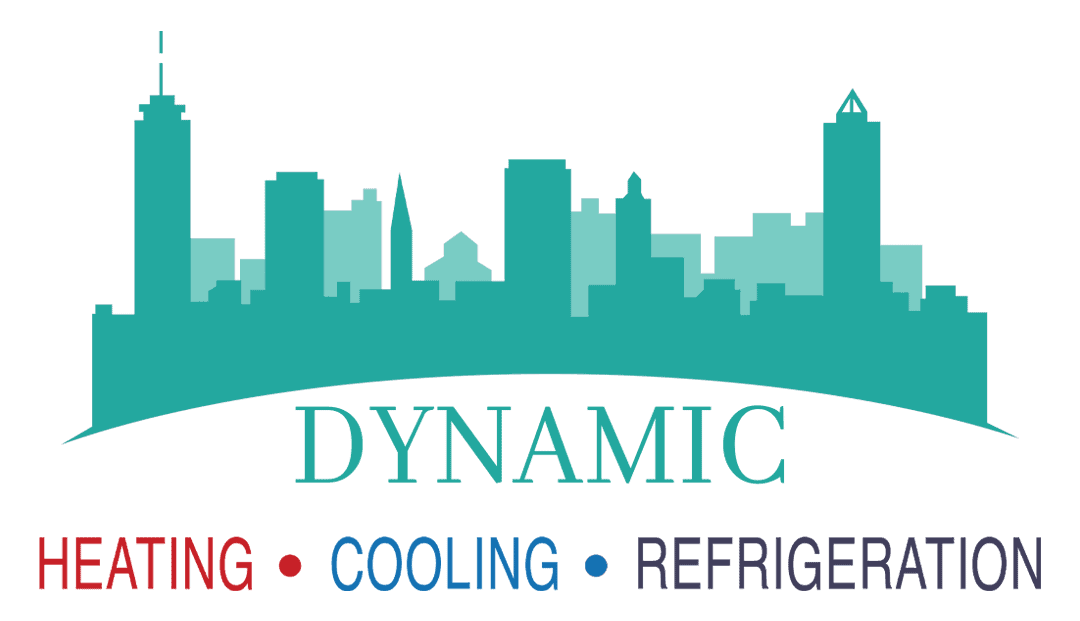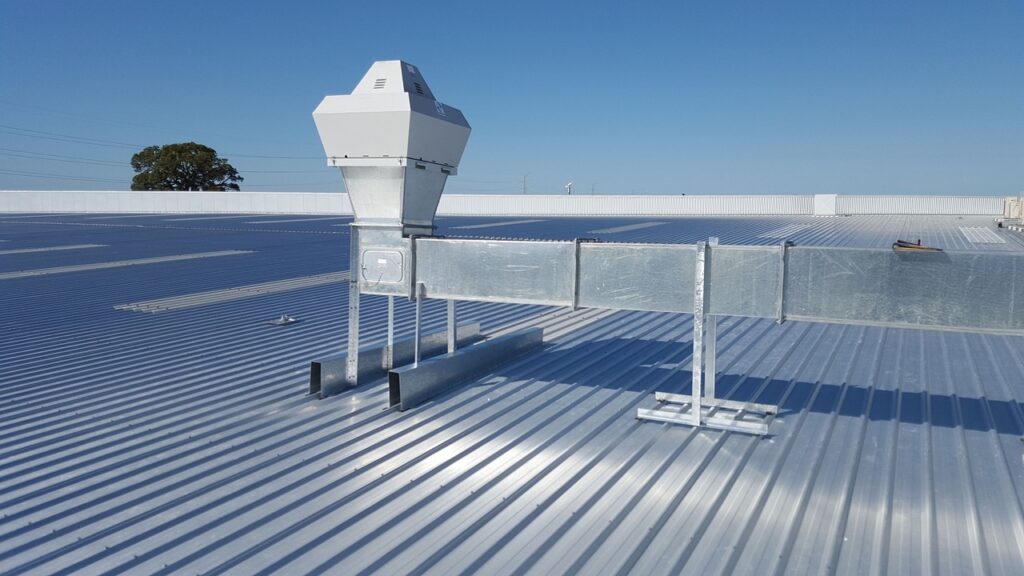In the quest for energy efficiency, modern homes are built to be airtight, minimizing heat loss during cold months and heat gain during warm months. While this is great for reducing energy bills, it can lead to a buildup of indoor air pollutants.
Everything from cooking fumes, pet dander, and cleaning chemicals to off-gassing from furniture and building materials can contribute to poor indoor air quality. That’s where a home air exchanger comes into play.
The Role of an Air Exchanger in Your Home
An air exchanger, also known as a heat recovery ventilator (HRV) or an energy recovery ventilator (ERV), is a system that helps to maintain a healthy indoor environment by continuously replacing stale indoor air with fresh outdoor air. Here’s how it works:
Ventilation
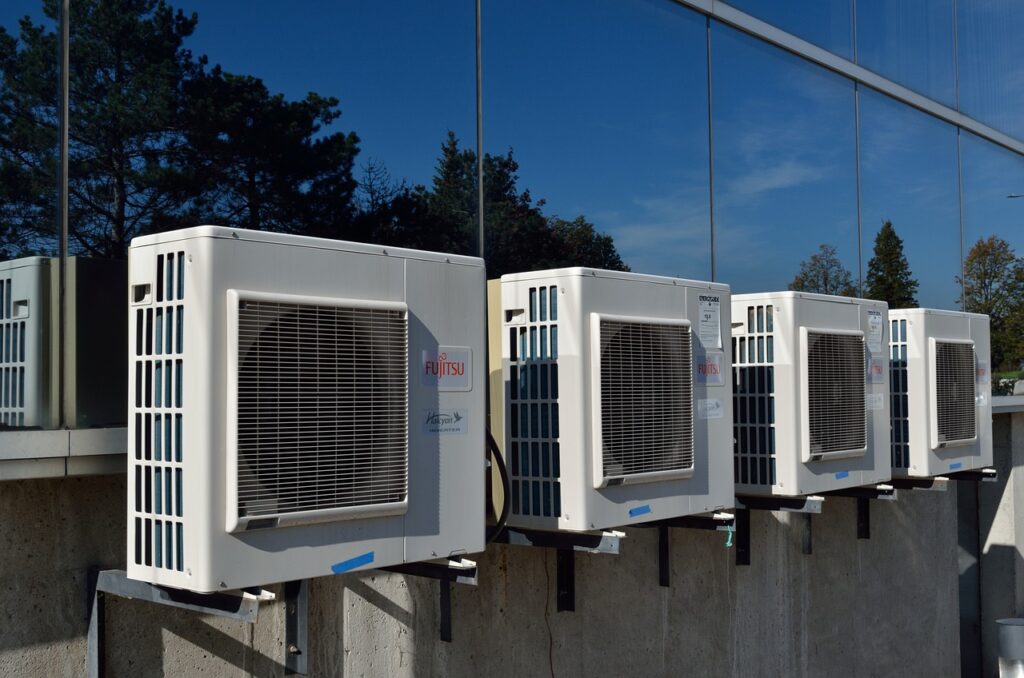
The air exchanger pulls fresh air from outside into your home while simultaneously expelling stale, contaminated indoor air. This process ensures a constant supply of fresh air, helping to dilute and remove airborne pollutants.
Heat Recovery
In colder climates, HRVs transfer heat from the outgoing warm indoor air to the incoming cold fresh air. This pre-warming of the fresh air means your heating system doesn’t have to work as hard, saving you energy and money.
Moisture Control
ERVs, in addition to transferring heat, also transfer moisture. In humid climates, this can help reduce the amount of humidity coming into your home, while in dry climates, it can help retain indoor humidity. This balance helps maintain comfortable humidity levels, reducing the risk of mould growth and other moisture-related issues.
Energy Efficiency
By recovering heat (and, in the case of ERVs, also moisture) from the outgoing air, air exchangers reduce the load on your heating and cooling systems, leading to lower energy consumption and costs.
Improved Air Quality
By continuously introducing fresh air, air exchangers help reduce the concentration of pollutants, allergens, and odours in your home, contributing to a healthier living environment.
What is an Air Exchanger?

An air exchanger, often referred to as an air exchange system or air to air exchanger, plays a pivotal role in maintaining the air quality and comfort of your home. An integral part of a modern HVAC air exchanger system, it ensures a continuous flow of fresh air, making your living environment healthier and more enjoyable.
An air exchanger operates by continuously replacing stale, contaminated indoor air with fresh, clean outdoor air, increasing your indoor air quality. This process offered by the home ventilation system is crucial for homes that are well-sealed and insulated, where natural airflow might be limited. By bringing in fresh air and expelling indoor pollutants, air exchangers help reduce allergens, odours, and harmful contaminants in your home.
Types of Air Exchangers
- Heat Recovery Ventilators (HRVs)
HRVs are air exchangers that not only exchange air but also transfer heat from the outgoing air to the incoming air. This heat exchange process ensures that the fresh air entering your home is pre-warmed, reducing the workload on your heating system and saving energy.
- Energy Recovery Ventilators (ERVs)
ERVs function similarly to HRVs but with the added feature of transferring moisture and heat. This makes ERVs particularly beneficial in areas with extreme climates, as they can help maintain optimal humidity levels inside your home.
Choosing the Right Air Exchanger for Your Home

Selecting the appropriate air exchanger system for your home is crucial for ensuring optimal air quality and comfort. Here are some key considerations and options to help you make the right choice:
Size of Your Home
The capacity of the air exchanger should be compatible with the size of your living space. A system that’s too small won’t effectively ventilate your home, while one that’s too large can be inefficient and costly.
Climate
Your local climate plays a significant role in determining the type of air exchanger that’s best for you. In colder climates, a heat recovery ventilator (HRV) is ideal, as it can transfer heat from the outgoing air to the incoming air. In more humid climates, an energy recovery ventilator (ERV) might be more suitable, as it can transfer both heat and moisture.
Specific Air Quality Needs
Consider any specific air quality issues you might have in your home, such as high humidity levels, allergens, or pollutants. This will help you choose a system with the right features to address your needs.
Best Options for Air Exchangers

When choosing an air exchanger for your home, it’s essential to consider your specific needs and circumstances. Each type of air exchanger offers unique benefits, so selecting the right one can significantly impact your home’s air quality and comfort.
Consulting with a professional HVAC technician can help you make an informed decision and ensure that your air exchanger is installed correctly and maintained for optimal performance. Here are some possible options:
Ductless HRV Systems
These are perfect for smaller spaces or homes without existing ductwork. Ductless HRV systems are compact and can be installed in individual rooms, providing targeted ventilation where it’s needed most.
Whole House Air Exchange Systems
For larger homes, a whole-house air exchanger is the best option. These systems are integrated with your home’s HVAC system and provide uniform ventilation throughout the entire house.
Specialized Systems
Depending on your needs, you might consider specialized air exchangers like garage air exchanger options, which are designed to ventilate spaces that might be prone to higher levels of pollutants or moisture.
Air Exchanger with Heat Recovery (HRV)
An HRV system is ideal for colder climates as it recovers heat from the outgoing air, reducing the energy needed to warm the incoming fresh air.
Air Exchanger with Energy Recovery (ERV)
An ERV system is suitable for both cold and humid climates as it can transfer both heat and moisture, helping to maintain comfortable humidity levels indoors.
Additional Tips for Air Exchangers
- Consult with Professionals: It’s always a good idea to consult with HVAC professionals like our HVAC team to assess your home’s specific needs and recommend the most suitable air exchanger system.
- Consider Energy Efficiency: Look for air exchangers with high energy efficiency ratings to ensure that your system not only improves indoor air quality but also helps reduce your energy bills.
- Maintenance and Filters: Consider the maintenance requirements of the system and the availability of replacement filters. Regular maintenance is essential for keeping your air exchanger working effectively.
Air Exchanger Installation: What to Expect
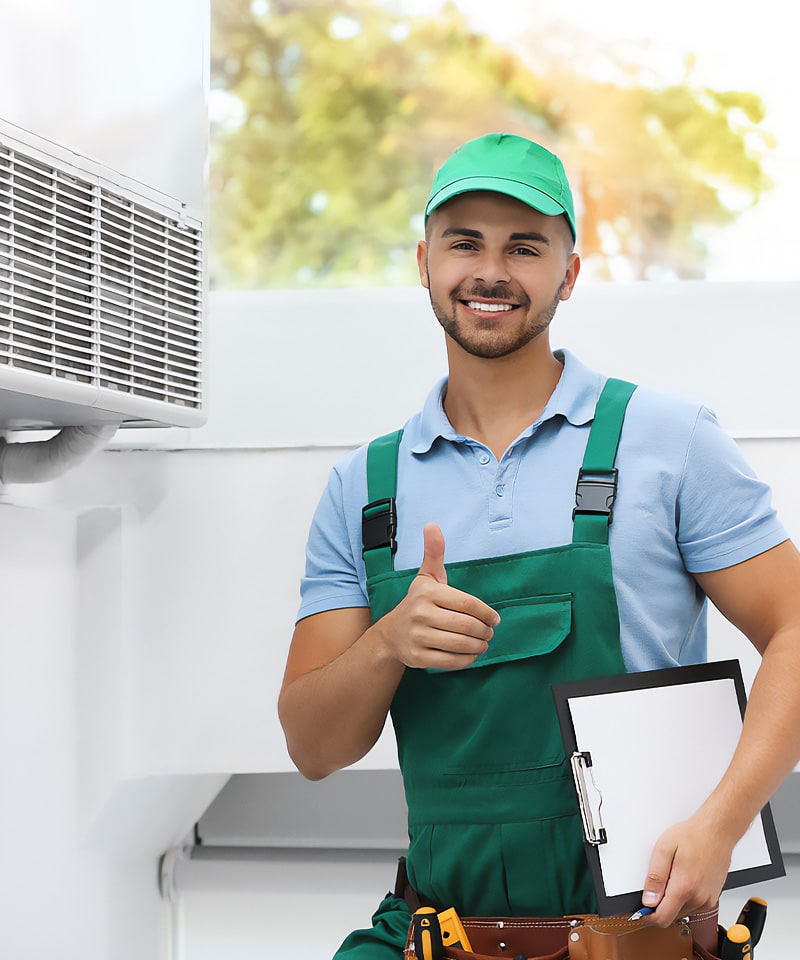
Installing an air exchanger is a crucial step in ensuring that your home enjoys optimal air quality and comfort. The process typically involves the following steps:
- Assessment
A professional HVAC technician will assess your home to determine the best location for the air exchanger and the type of system that will suit your needs.
- Ductwork
If your home doesn’t already have ductwork, the technician may need to install new ducts to connect the air exchanger to various rooms in your home. Additionally, they may need to perform duct cleaning and other HVAC maintenance tasks to keep the system running smoothly before and after air exchanger installation. Ductless HRV systems are also gaining more and more popularity in Canada.
- Placement
The air exchanger unit will be strategically placed and installed, usually in a basement, attic, or utility room, to ensure efficient operation and easy access for maintenance.
- Integration
The system will be integrated with your existing HVAC system to ensure seamless operation and control.
- Testing
Once installed, the technician will test the system to ensure it’s working correctly and make any necessary adjustments.
The Importance of Air Exchanger Filters

Air exchanger filters play a vital role in maintaining the efficiency and effectiveness of your air exchange system. These filters trap dust, pollen, and other airborne particles, preventing them from entering your home. Regularly checking and replacing these filters is essential for:
- Maintaining Air Quality
- Protecting the System
- Energy Efficiency
It’s recommended to check your air exchanger filters every 1-3 months and replace them as needed, depending on the usage level and the manufacturer’s guidelines.
Enhance Your Home Comfort with Dynamic Heating and Cooling
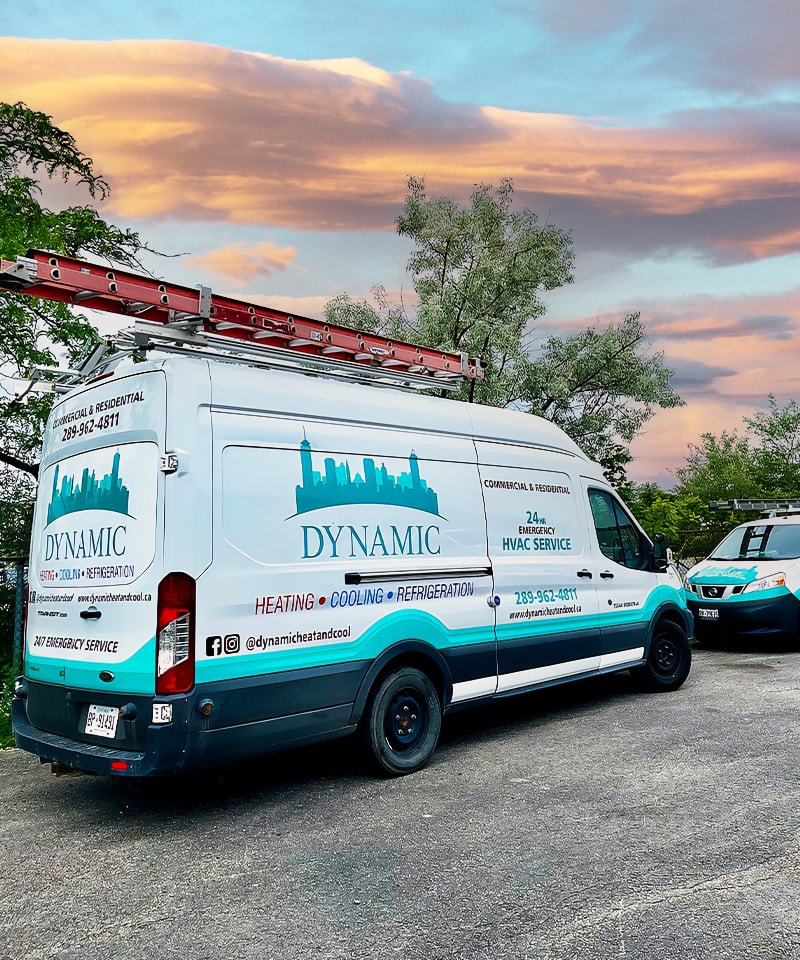
In conclusion, an air exchanger is an essential component of a healthy and comfortable home, especially in Canada’s varying climate. If you’re considering installing an air exchanger or have any questions about your home’s ventilation systems, Dynamic Heating and Cooling is here to help. Contact us today to ensure your home enjoys optimal air quality and comfort all year round.
Frequently Asked Questions About Air Exchangers
What is an air exchanger?
An air exchanger is a device that helps ventilate your home by exchanging indoor air with fresh outdoor air, ensuring that your living environment remains healthy and comfortable.
How does an air exchanger work?
An air exchanger works by pulling fresh air from outside into your home while simultaneously expelling stale, contaminated indoor air, thereby improving air quality and comfort.
What is an air to air exchanger?
An air to air exchanger is an air exchanger that explicitly exchanges indoor air with outdoor air without mixing the two, providing efficient ventilation and maintaining indoor air quality.
What is a whole house air exchange system?
A whole-house air exchange system is a comprehensive ventilation solution that provides fresh air to the entire home, ensuring consistent air quality throughout the living space.
What is the cost of an air exchanger?
The cost of an air exchanger can vary depending on the type, size, and features of the unit, as well as installation costs. It’s important to consult with a professional to get an accurate estimate for your specific needs.
What is an air to air heat recovery exchanger?
An air to air heat recovery exchanger, also known as a heat recovery ventilator (HRV), is a device that transfers heat from outgoing stale air to incoming fresh air, conserving energy and maintaining indoor comfort.
Does an air exchanger cool the house?
While an air exchanger’s primary function is ventilation, it can indirectly help cool the house by removing warm, stale air and bringing in cooler, fresh air from outside.
What is a heat recovery air exchanger?
A heat recovery air exchanger is another term for a heat recovery ventilator (HRV), which recovers heat from outgoing air to preheat incoming fresh air, improving energy efficiency in the home.
What does an air exchanger do?
An air exchanger ventilates a home by continuously exchanging stale indoor air with fresh outdoor air, improving indoor air quality, and maintaining a comfortable living environment.
What is an air circulation system?
An air circulation system is a system that moves air within a building to distribute heating, cooling, or fresh air evenly throughout the space, enhancing comfort and air quality.
What is a home ventilation system?
A home ventilation system is a system designed to provide fresh air and remove stale air from a home, improving indoor air quality and overall comfort for the occupants.
What is an air exchanger filter?
An air exchanger filter is a component of an air exchanger that traps dust, pollen, and other airborne particles, preventing them from entering your home and maintaining indoor air quality.
Can an air exchanger make my house cold?
An air exchanger should not make your house cold if it is functioning correctly. It is designed to exchange indoor air with outdoor air without significantly affecting the indoor temperature. If your house feels cold, it could be due to other factors or an issue with the system that needs to be addressed.
How is air to air exchanger installation done?
Air to air exchanger installation involves selecting the appropriate location, installing ductwork if necessary, mounting the unit, connecting it to the existing HVAC system, and ensuring proper ventilation. It’s recommended to have a professional HVAC technician handle the installation to ensure it’s done correctly.
What is the significance of heat recovery ventilation in Canada?
Heat recovery ventilation is significant in Canada due to the country’s cold climate. It allows for efficient ventilation by recovering heat from outgoing stale air and transferring it to incoming fresh air, reducing the energy required to heat the home and improving indoor air quality.
